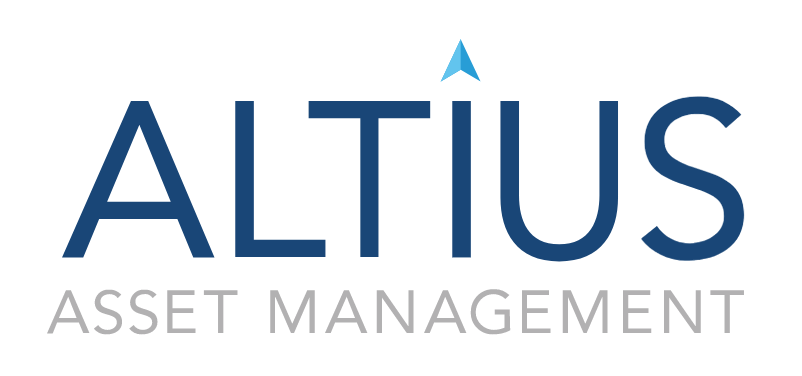Why ESG is essential for risk management
Bill Bovingdon is the co-founder and chief investment officer of Altius Asset Management, a specialist in sustainable cash and fixed interest with a focus on environmental, social and governance (ESG).
Altius currently manages a range of funds including the Green Bond Fund, the Sustainable Short Term Income Fund and the Altius Sustainable Bond Fund.
In a recent episode of the ifa Show, Mr Bovingdon discussed the role ESG plays in risk management and how bonds can create impact for responsible investors:
- A
- A
- A

Q. Can you explain ESG and sustainable investing?
There are many terms, and perceptions of responsible investment, but for us sustainable investment, means an ESG focus and delivering positive impact - - being true to the label is the real key.
ESG considerations, are fundamental to proper risk assessment, and that's key for all investments because it feeds directly into the financial risk of every investment you make.
Sustainable investment, under the philosophy that Altius applies, prosecutes the theory that sustainable organisations provide better and/or safer returns in the long run.
Q. Does sustainable investment change the character of cash and bond investments?
It doesn't. You're still invested in a traditional cash or fixed-income instrument in that it pays you coupons, and your principal on maturity. The market value of the bond or other instrument also still goes up and down in the financial market with other bonds.
Crucially though, as a sustainable investor, , our due diligence is done in the background to make sure that we're not investing into unsustainable and socially harmful activities, such as armaments, tobacco, gambling, and, increasingly, the client expectations that a sustainable investment addresses their concern about climate change.
In that regard, one of the real key characteristics of all our sustainable funds, ( (income, bonds, and our dedicated Green Bond Fund) , is that they not only have negative screening, but also positive screens that make use of “use of proceeds” bonds.
Unlike traditional cash and bond investments, where you have no control or transparency over how your funds are going to be used, a well-constructed “use of proceeds” or “KPI” framework around a green bond or a sustainability-linked note, means , ensures your money is going to be directed toward outcomes that align with the values and objectives of a sustainable investor including the lowering of emissions.
That means sustainable bond and cash investments can now deliver both the diversification and defensive income qualities of the past, but also real impact, which is a great development in financial markets.
Q. Is there any compromise on returns?
Our experience and research suggest not. Long term performance data from sustainable or ESG-aware funds, both in the equity market and the bond market globally, shows they have kept pace or even shaded conventional portfolios.
Also, there's an additional layer of risk management that comes from having an ESG lens when you are assessing bonds, given the risk of future regulation, stranded assets, privation of capital or loss of social license that poor ESG practices can lead to.
Q. Could you tell us more about the Green Bond Fund?
The fund predominantly looks to target emissions in Australia. Whilst clearly don’t recognise borders, we wanted to make sure that there was a fund which catered for investors to promote initiatives offered by companies, governments and multinationals that reduce emissions, within Australia – driving action in our own backyard.
And its working. New issuers are coming to the market Including household names like Wesfarmers and Woolworths with both green bonds or sustainability-linked bonds creating a vibrant sustainable finance market available to financiers who want to make positive impact, particularly with respect to their carbon footprints.
Q. Over the next decade, do you think some investors could remain hesitant or uninterested in sustainable investing?
I almost think it's going to be impossible for capital market participants to do anything other than embrace sustainable investment. For those raising capital it will be a prerequisite. It would be like a borrower trying to come to market without audited accounts. They will need a sustainability plan, which is comprehensive, consistent, free of green-wash and probably subject to 2nd party review, and third-party verification and outcome reporting. If those things aren't in place, I just see that it's going to be very difficult for companies to access capital.
We've already seen that playing out politically in Australia, where one of the big motivations for net zero by 2050 was a recognition that international investors that fund our budget deficits can and have put Australia on the excluded investment list for not having good sustainability policies.
I think that's going to happen at every level - Federal, State, local. Government, corporate, and personal.
Important information
Units in the Green Bond Fund, Sustainable Short Term Income Fund and Altius Sustainable Bond Fund (Funds) are issued by Australian Unity Funds Management Limited (AUFML) ABN 60 071 497 115, AFS Licence No. 234454 as responsible entity. The information contained above is not based on the objectives, financial situation or needs of any particular investor. In deciding whether to acquire, continue to hold or dispose of the product you should obtain the relevant Product Disclosure Statement and consider whether the product is appropriate for you. Past performance is not a reliable indicator of future performance.
Subscribe to 
Never miss the stories that impact the industry.






